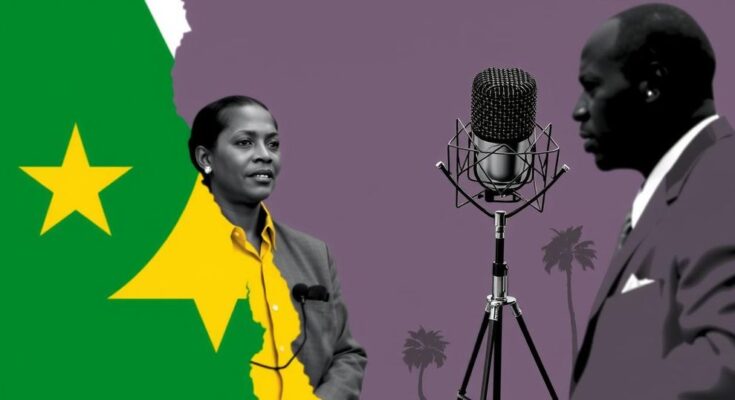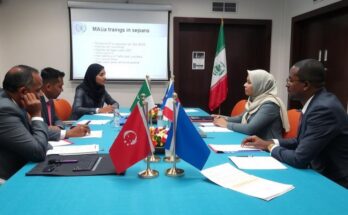Peace talks in South Sudan have resumed in Kenya after a four-month pause caused by the dismissal of the government delegation. The discussions aim to address concerns from opposition groups excluded from the 2018 agreement that ended a lengthy civil war. Continued political and economic challenges, coupled with human rights issues, underscore the complexity of achieving a lasting resolution.
Following a four-month hiatus marked by the dismissal of the previous government delegation, peace talks aimed at resolving the long-standing conflict in South Sudan have recommenced in Kenya. The discussions involve the South Sudanese government and opposition factions that were excluded from the 2018 peace accord, which concluded a devastating five-year civil war resulting in the loss of over 400,000 lives. Labeled ‘Tumaini’, meaning ‘hope’ in Swahili, the talks commenced in May with a commitment towards peace declaration.
The negotiations faced interruptions due to President Salva Kiir’s sacking of the initial government delegation. This led to the appointment of a new team that encountered travel challenges, further delaying the discussions. President Kiir clarified that the intent of these talks is not to replace the previous agreement but rather to include concerns from excluded groups. As full implementation of the 2018 peace agreement remains pending, elections initially scheduled for December 2024 have been postponed to 2026 due to delays in voter registration and financial issues impacting the electoral process.
Economic instability has severely affected the nation, with civil servants reportedly going more than a year without salaries as oil exports— the principal revenue source— have been disrupted. Human rights issues have also arisen, with protests against recent legislation permitting detentions without warrants. Mediation chief Lazarus Sumbeiyo called for urgent resolution of outstanding issues, while Pagan Amum of the South Sudan Opposition Movement Alliance emphasized the importance of adhering to previous agreements.
Kuol Manyang Juuk, representing the government, urged all parties to collaborate effectively rather than start anew, highlighting a shared responsibility to expedite progress to avoid further disintegration of the nation.
The civil conflict in South Sudan began shortly after the country achieved independence in 2011, primarily driven by power struggles among political elites. The resultant humanitarian crisis has led to widespread displacement and economic decline, with countless citizens affected. The 2018 peace agreement was intended to halt hostilities, yet its full implementation has been elusive, contributing to ongoing tensions. Recently, government actions and legislation have further complicated peace efforts, particularly affecting human rights and public trust. This context underscores the significance of the resumed talks in Kenya, aiming to unify diverging factions and stabilize the nation.
The resumption of South Sudan peace talks signifies a crucial step towards addressing longstanding conflicts and integrating various political factions into a cohesive dialogue. With heightened urgency from both government and opposition representatives, the intended focus on reaffirming previous agreements illustrates a collective desire to avert further national decay. However, the enduring economic crisis and human rights concerns remain significant challenges that must be navigated carefully to achieve lasting peace.
Original Source: apnews.com




